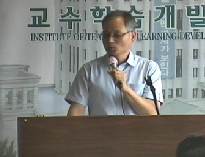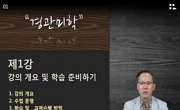To understand the relationship between humanism and nationalism in Ho Chi Minh (HCM)’s Prison Diary (PD) in the light of Postcolonialism, this study focused on analyzing selected poems to find out in what ways humanism and nationalism are equally im...
http://chineseinput.net/에서 pinyin(병음)방식으로 중국어를 변환할 수 있습니다.
변환된 중국어를 복사하여 사용하시면 됩니다.
- 中文 을 입력하시려면 zhongwen을 입력하시고 space를누르시면됩니다.
- 北京 을 입력하시려면 beijing을 입력하시고 space를 누르시면 됩니다.
Relationship between Humanism and Nationalism in Ho Chi Minh’s Prison Diary in a Third-World Context
한글로보기https://www.riss.kr/link?id=A106636382
-
저자
Pham Tran Thuy Anh (Hue University)

- 발행기관
- 학술지명
- 권호사항
-
발행연도
2019
-
작성언어
-
- 주제어
-
KDC
300
-
자료형태
학술저널
-
수록면
250-288(39쪽)
- DOI식별코드
- 제공처
-
0
상세조회 -
0
다운로드
부가정보
다국어 초록 (Multilingual Abstract)
To understand the relationship between humanism and nationalism in Ho Chi Minh (HCM)’s Prison Diary (PD) in the light of Postcolonialism, this study focused on analyzing selected poems to find out in what ways humanism and nationalism are equally important in HCM’s PD, in what ways they seem conflicting and exclusionary, in what ways the relationship shapes what might be called the “postcolonial aesthetic” of PD, and in what ways its use of alternative modes, gestures, motifs or protocols from traditional or modern poetry are a function of the dynamics between the concrete specificity of Vietnamese nationalism and humanism. Five in nine poems discussed in the paper are short ones with four lines and seven words in each line. The others consist of two or three short stanzas; still, they all are written in Chinese characters in accordance with Tang poetry tradition using simple vocabulary. In terms of content, the poems deal with a range of topics which are in keeping with the conventions of the Tang poetry like human beings, animal, nature, situations, things, time, and experiences and situations in different Chinese prisons. In addition, stories about social life become a source of aspirations in the prison poems. The discussion shows that the poems in PD connect nationalism to humanism in the context of Postcolonialism as explained by Said (2004), and specifically in the context of third-world literature as agued by Jameson (1986), making PD unique and distinctive. Read as “national allegory,” following Jameson’s argument, HCM’s poetry embodies the humanism and nationalism of the Vietnamese people in the midst of their struggle for national independence.
목차 (Table of Contents)
- 1. Introduction 2. How Prison Diary’s nationalism is integrated to humanism in the light of Postcolonialism 3. How HCM’s humanism is interrelated to nationalism as a “national allegory” 4. Conclusion References
- 1. Introduction 2. How Prison Diary’s nationalism is integrated to humanism in the light of Postcolonialism 3. How HCM’s humanism is interrelated to nationalism as a “national allegory” 4. Conclusion References
동일학술지(권/호) 다른 논문
-
Mobile Hallyu: Creativity and Mobility
- 건국대학교 아시아·디아스포라 연구소
- Soochul Kim
- 2019
-
A Form of Imbalance of Power: A Case of Indian Migrant Construction Workers in Singapore
- 건국대학교 아시아·디아스포라 연구소
- Yasuko Hassall Kobayashi
- 2019
-
모빌리티의 발달과 일본 교외의 형성 : 오오카 쇼헤이「 머나먼 단지(遥かなる団地)」속의 교외형 단지
- 건국대학교 아시아·디아스포라 연구소
- 우연희(Yeonhee Woo)
- 2019
-
Exploring “Korean Islam” in a Climate of Exclusion and Islamophobia
- 건국대학교 아시아·디아스포라 연구소
- Farrah Sheikh
- 2019




 스콜라
스콜라






